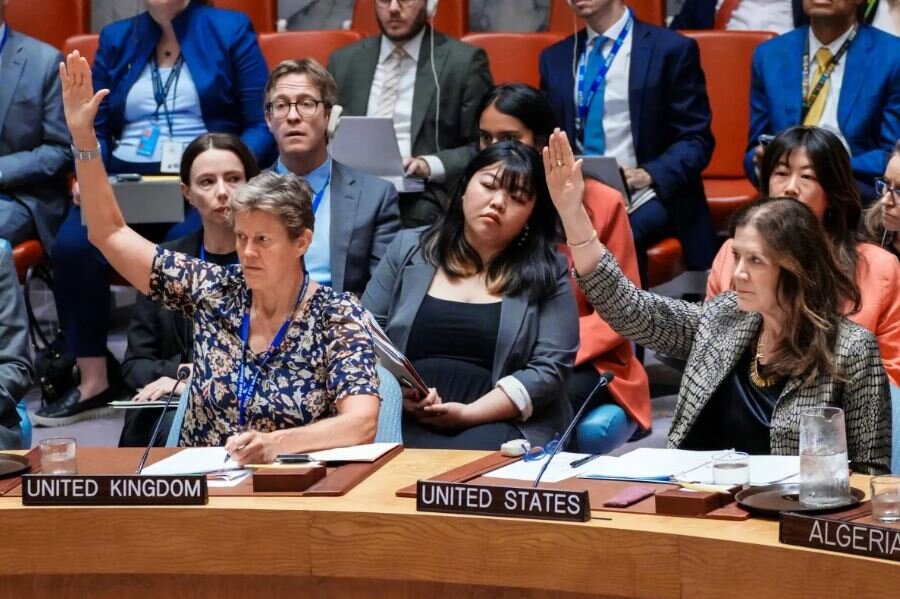US will stop at nothing to assert dominance over other nations: Sierra Leone scholar

TEHRAN – In a dramatic development at the United Nations last Friday, September 19, 2025, the Security Council voted against a proposal to extend sanctions relief for Iran, paving the way for the automatic re-imposition of previous UN sanctions under the so-called “snapback” mechanism.
The countries opposing the proposal included the United States, Britain, France, Sierra Leone, Slovenia, Denmark, Greece, Panama, and Somalia. Guyana and South Korea abstained from the vote.
To better understand the rationale behind some of these opposing positions, the Tehran Times conducted an exclusive interview with Sheku Putka Kamara, journalist, Managing Editor/Partner of Expo Times Newspaper and Expo Magazine in Freetown. Kamara shared his insights on Sierra Leone’s decision to vote against the proposal, reflecting both regional and diplomatic considerations.
Below is the full text of the interview:
What underlying political or diplomatic factors influenced Sierra Leone and Somalia’s decision to support the activation of the snapback mechanism against Iran?
One thing is certain; the U.S. will stop at nothing to create its dominating impact against other nations. While the Iranian war may be the natural and unavoidable conflict between the Islamic Systems, Sierra Leone as a smaller force is likely to toe the stands of utilitarian perspectives; providing the greatest good for the greatest number. So, factors may revolve around foreign policy etc.
Can you shed light on any economic, military, or diplomatic ties between Sierra Leone, Somalia, and the Western powers backing the snapback mechanism?
Somalia is home to most peacekeepers from Sierra Leone. A number have benefited from such missions. As early as May 2025, 38 Sierra Leonean peacekeeping mission officers returned home from Somalia. This tends to create some professional rift between the two nations as and when reasonably called for.
How is this vote perceived domestically in Sierra Leone and Somalia? Is there significant public debate or media coverage on their countries’ stance toward Iran?
Not sure. In fact, save the international agendas, hardly do people, particularly locals talk on such matters. This is to suggest that the topics are not as open as others in so far as general agenda setting is concerned.
What implications might Sierra Leone and Somalia’s vote have on their international standing and future relations with Iran and other Middle Eastern countries?
It'd be obvious. A risk factor will always be at play. The best option will be to take an action that is suitable for Iran; if not, a case of no love lost may be inevitable.
Do you think the decision to vote in favor reflects a broader alignment or realignment in Sierra Leone and Somalia’s foreign policy priorities?
Most likely, but the same would be a matter of wait and see.
From your perspective, how might this vote affect the credibility and functionality of the UN Security Council and its mechanisms?
To some extent. Sierra Leone is now seen as an active player. So, it is best practice for the right thing to be done and in the best interest of the country.
Are there historical precedents or patterns in Sierra Leone and Somalia’s voting records on Middle Eastern issues that help explain their current position?
Not quite. I'd say that the current status/tend is arguably circumstantial.
Looking ahead, do you think Sierra Leone will maintain a similar stance on Iran-related issues, or is there potential for reassessment?
There'd always be room for some reassessments. This is to suggest that Nation States may be at liberty to review and resubmit positions and standpoints and so Sierra Leone's case may and should not be different.
Leave a Comment